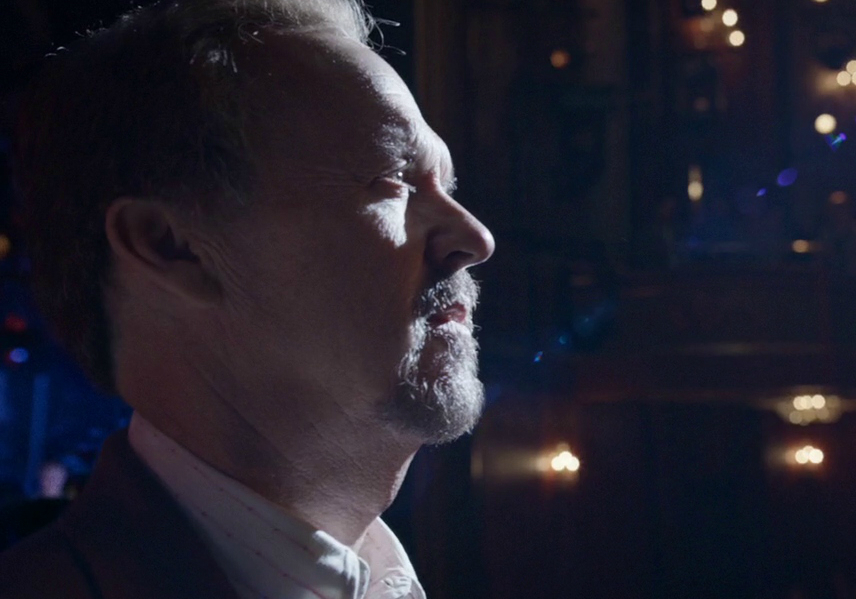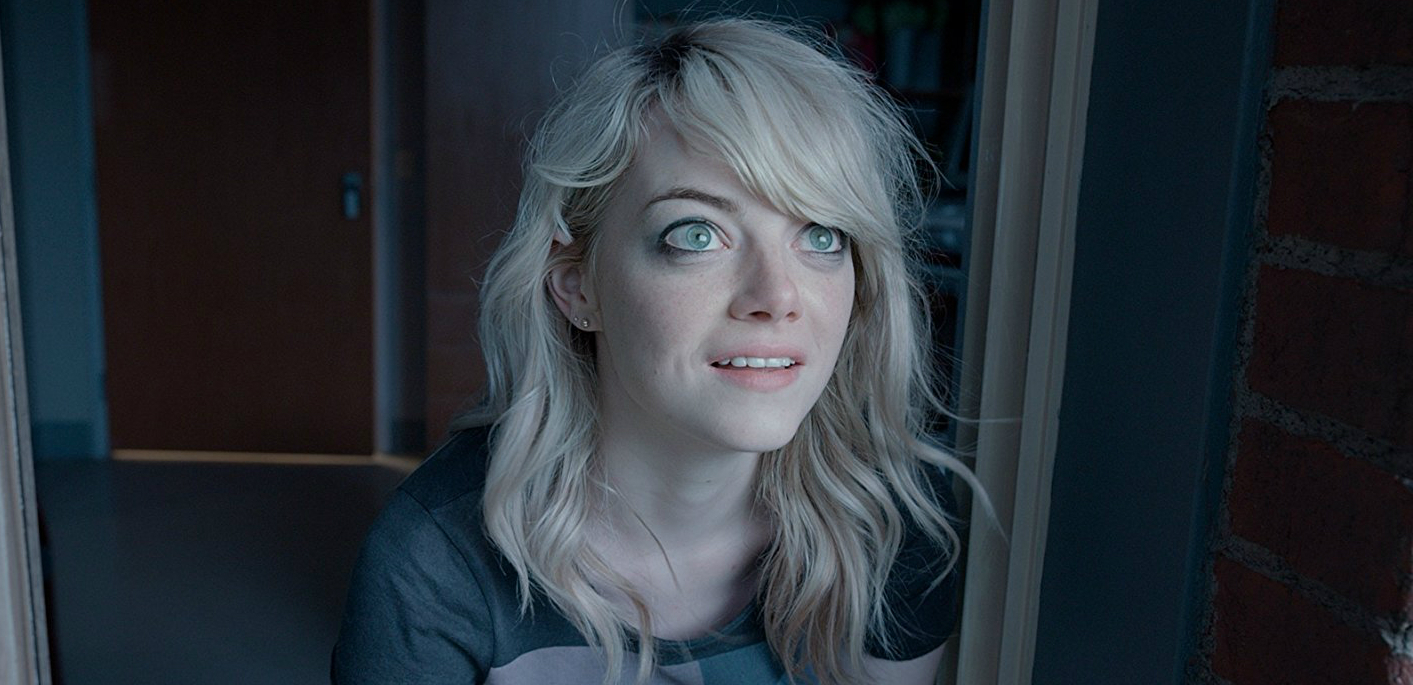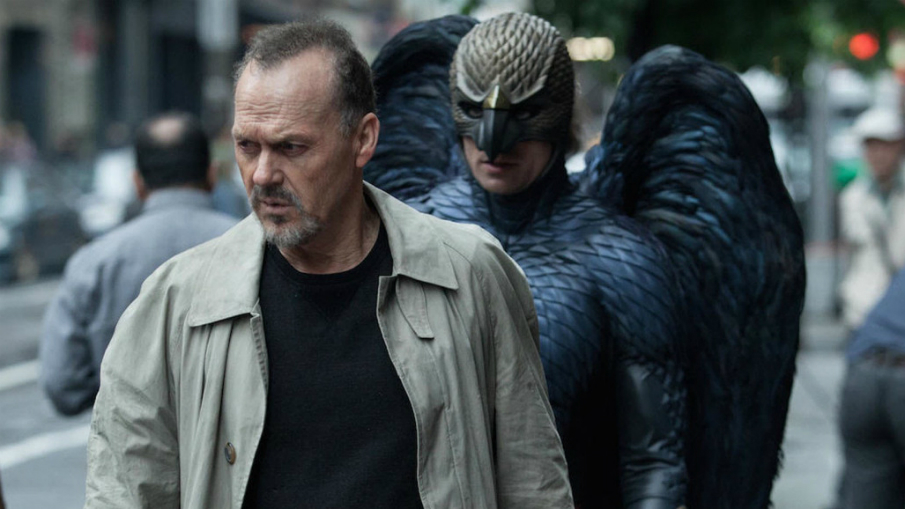The Oscars giving Best Picture to Birdman really cemented the stance some critics had taken in recent years, which was that the Academy had become insulated, self-obsessed. While they had given Best Picture to 12 Years a Slave a year earlier, the previous two years were, like Birdman, big celebrations of Hollywood’s importance, with The Artist winning in 2011 and Argo in 2012. Yet, while The Artist and Argo certainly appealed to the crowd-pleasing power of the cinema, Birdman was its cynical cousin, armed at the ready to lecture you about how art is dead and how the sheeple need to wake up, man. As such, Birdman does not feel like the kind of film that would excel in a preferential voting system, where the least offensive movie often wins. This film is loud, in your face, esoteric at times, and off-putting to some.
The reason Birdman‘s path to victory wasn’t set in stone was because there was another frontrunner in the race that year — Boyhood. The indie drama directed by Richard Linklater was filmed over the course of 12 years and had the distinction of being the most critically-acclaimed film of 2014. Boyhood won a boatload of critics prizes leading up to the Oscars, making it a clear frontrunner to win Best Picture. Yet, it did not happen. Birdman came in, won a handful of industry awards and went on to take home the biggest Oscar of the night.
So what happened? Was there backlash to Boyhood as a frontrunner? Was the subject matter of Birdman what tipped it over the edge? And how will Birdman stand the test of time?
The Socio-Political Climate
Hollywood was in crisis. Well, Hollywood artists were in crisis. Superhero films and big loud adaptations had taken over, with some of the biggest films of the year being the latest editions of The Hunger Games, Captain America, The Hobbit, and Transformers, plus new films based on kid-friendly properties, like Guardians of the Galaxy, The Lego Movie, and Maleficent. Marvel and DC were announcing their laundry list of upcoming blockbusters, with nothing more than a title and a release date way off in the future. Was this what the movie industry had become?
There was a prevailing notion of studio bigwigs catering their films to teenage boys and geeky men, even with films like The Hunger Games and Maleficent (plus Frozen the year before) doing so well at the box office. As is often the case, the Academy looked past most of the big films of 2014, outside of American Sniper, but even still, they went for films that were very male driven with few female protagonists in sight. Gone Girl was one of the bigger movies of the year both critically and financially but it was shockingly ignored by the Academy outside of Rosamund Pike for Best Actress.
The biggest story, though, was how the Academy had completely snubbed people of color in all acting categories. Of the 20 slots reserved for acting nominees, not a single person of black, Asian, Latino, Indian, or Middle Eastern descent was represented, even David Oyelowo for his revered performance as Martin Luther King, Jr. in Selma. It was a huge oversight, to the point that that year’s Oscar host, Neil Patrick Harris, addressed the controversy head-on in his opening monologue, saying, “Tonight, we honor Hollywood’s best and whitest. Sorry, brightest.”
There was an uneasy anxiety going on for many reasons, an anxiety very much reflected in Birdman itself.
The Campaign
Birdman premiered at the Venice Film Festival on Aug. 27, 2014. It was the announced to be the opening film of the festival, which is typically a harbinger of buzz (Gravity opened the festival the previous year and Black Swan opened in 2010). The film became an instant critics favorite, with Variety raving that it was “a triumph on every creative level” and giving special praise to Michael Keaton, who plays the film’s protagonist, Riggan Thomson. With a slew of great press, Fox Searchlight released the film in limited engagements on Oct. 17 and later expanded wider in November.
Keaton and director Alejandro G. Iñárritu were not glad-handing every Academy member once awards campaigning began, though. They and the rest of the cast were pretty under the radar compared to Boyhood‘s many screenings and Q&As and The Theory of Everything star Eddie Redmayne charming the pants off the more senior members of the Academy. The cast and crew were still out there — after all, you can’t really win an Oscar without devoting at least some effort to campaigning — but beyond Keaton’s comeback narrative there wasn’t a whole lot of evidence to suggest Birdman had a compelling enough rooting factor to seduce Academy voters into naming it Best Picture.
Birdman picked up many Best Actor prizes for Keaton and Director awards for Iñárritu from the critics circles, though Boyhood ate up most of the Best Picture wins. Even the Golden Globes, who typically love boisterous movies like Birdman, passed it up for The Grand Budapest Hotel in the Best Picture (Comedy or Musical) category. There was a sense that Birdman was in the hunt for the Best Picture prize, but Boyhood had really eclipsed so much up to that point that it seemed unbeatable.
When the Oscar nominations were announced, Birdman emerged as one of two nomination leaders with nine citations, including Best Picture, Best Director for Iñárritu, Best Actor for Keaton, Best Supporting Actor for Edward Norton, Best Supporting Actress for Emma Stone, Best Original Screenplay for Ińárritu, Nicolás Giacobone, Alexander Dinelaris Jr. and Armando Bo, Best Cinematography, Best Sound Editing, and Best Sound Mixing.

The Other Nominees
Eight films were chosen as Best Picture nominees for 2014, and most of them had to do with the greatness of men — particularly white men. Missing from the lineup were critically-acclaimed films told from a female perspective, like Gone Girl, Wild, and Under the Skin, and bold films that weren’t afraid to show the corruption of mankind, like Nightcrawler, Foxcatcher, Inherent Vice, and Snowpiercer.
The only Best Picture nominee that you could say has a female lead at all is The Theory of Everything, thought the role of Jane Wilde Hawking (Felicity Jones) was overshadowed by her much more famous husband, Stephen Hawking (Eddie Redmayne). The Theory of Everything was one of several biopics in the race, though it was by far the most emotionally manipulative. Redmayne’s transformative performance (combined with his handshaking and baby kissing) resulted in the Oscar for Best Actor.
The Imitation Game was Oscar bait at its finest, telling the story of Alan Turing, of the famous Turing machine, that helped decode German intelligence in World War II. The film was mostly a bridesmaid throughout the award season, though it did walk away with one Oscar: Best Adapted Screenplay for Graham Moore.
Selma was one of the more hyped films of 2014, chronicling Martin Luther King Jr.’s (David Oyelowo) march from Selma to Montgomery to tear down strict requirements put in place that prevented many African Americans from voting in the Deep South. The film came from Ava DuVernay, who became the first black, female director to be nominated for Best Director at the Golden Globes. Oscar nominations morning was much less of a celebration, though, as Selma only received two nominations, for Best Picture and Best Original Song (“Glory,” which won the category).
Then there was American Sniper, which performed so well at the box office that it became the no. 1 movie of 2014 at $350 million domestic. As an action/war film about Chris Kyle (Bradley Cooper), the sniper who killed hundreds in the Iraq War, the movie appealed greatly to Americans from the heartland and offered an interesting alternative to most of the other films in this race. Ultimately its conflicts were a little too black and white for my taste, but it is a strong technical achievement and picked up a win for Best Sound Editing.
These four biopics have their merits, but none were able to break through and become frontrunners at any point in the race.
Moving on from the biopics we had Whiplash, which was about as close as we could get to challenging artistic achievements in the vein of Gone Girl and Nightcrawler. Whiplash, about an ambitious drummer and his sadistic teacher, was the smallest Best Picture nominee in the race, with a shoestring budget and a $6 million haul at the box office. Yet, the film is such a dark, high-octane experience that it seemed to really connect with those who saw it. While Damien Chazelle was not able to snag a Best Director nomination, I believe Whiplash was very much in the running for a Best Picture win, considering it won three other Oscars — Best Supporting Actor for J.K. Simmons, Best Film Editing, and Best Sound Mixing.
However, Whiplash was probably a distant fourth to the other three films in this race. The Grand Budapest Hotel proved to be a huge contender, tying Birdman‘s nomination-leading nine nominations including Best Director for Wes Anderson. The film centers on a hotel concierge (Ralph Fiennes) who is framed for a scandalous murder and must prove he is innocent. While the premise is dark, Anderson infuses the film with his signature dollhouse whimsy, creating his most visually-stunning piece of art yet. The film earned the Golden Globe for Best Picture (Comedy or Musical) and would later win four Oscars, including Best Production Design, Best Makeup and Hairstyling, Best Costume Design, and Best Original Score.
Finally, Boyhood. Even looking beyond the fact that this movie was filmed over the course of 12 years using the same four actors, it is a pure creative achievement on an emotional level. The story of Mason (Ellar Coltrane), an ordinary boy growing up in Texas, is a simple one. There are no frills or extraordinary moments, at least not on the surface. But it finds the extraordinary in the ordinary, highlighting how life’s little moments may not seem like much at the time but they in fact come to define who we are as people. Suffice to say, I fell head over heels for this film, and it was crushing to see it lose Best Picture. Luckily, it was nominated for six Oscars and walked away with one award, winning Best Supporting Actress for Patricia Arquette.
The Final Vote
Birdman winning Best Picture can be attributed to a few main factors. For one, it is a movie that hits very close to home for Academy members, speaking directly about the state of the movie industry and of art itself. It centers around actors, by far the biggest branch of the Academy, who give voice to what many are probably thinking but are too scared to say themselves. Riggan is a mess of a man, but he bleeds for his art, and that’s how many in the movie industry, even beyond neurotic actors, tend to fancy themselves. The film also rails against critics, featuring not one but two scenes where passionate actors yell at a theater critic for daring to do her job. It’s an actor’s fantasy. How could they resist?
Most importantly, though, Birdman likely won as a reaction to Boyhood backlash. Boyhood remains one of the only movies in history to have a perfect score of 100 on Metacritic. Critics groups showered the film with Best Picture wins. It was the ordained frontrunner, and it seemed unstoppable. But with those high expectations comes disappointment. Some stated that the 12-year production schedule was just a gimmick, feeling like the film reveled too much in “the ordinary” and in doing so created an ordinary film. Plus, the film did not have the same level of buzzy talent as Birdman‘s stars. Ellar Coltrane was an unknown and Ethan Hawke and Patricia Arquette are respected but not exactly A-list. All of Boyhood‘s stars take a naturalistic, subtle approach, and that can be hard to translate.
After the various critics groups were done, the industry took over and made it clear that they were going in a different direction. Industry groups like the Screen Actors Guild (SAG), the Directors Guild of America (DGA), and the Producers Guild of America (PGA) all gave their top prize to Birdman, showing a big disconnect between critics and industry. I still thought Boyhood would prevail at the Oscars because of the preferential voting system, considering Birdman had its fair share of critics who would have ranked it towards the bottom, but I was wrong. In retrospect, it is the kind of win that makes me less likely to count critics wins as an accurate predictor of Oscar success. It truly comes down to what the industry likes, in the end.

The Film Itself
Despite my sour feelings on Boyhood not prevailing, I do have respect for Birdman as an artistic achievement. Michael Keaton’s performance remains one of the best I’ve seen in recent years, playing an aging actor haunted by his most iconic role as the superhero Birdman and looking to stage a comeback through a theatrical production on Broadway. Of course, it is hard to ignore the meta context, with this also being Keaton’s comeback after playing Batman in the ’80s and ’90s. The performances are uniformly excellent, with Edward Norton and especially Emma Stone nailing vibrant, one-take monologues.
The technical aspect of what Birdman pulls off, though, is what really shines. The film is made to look like it is entirely one take, and even if there is some clear trickery involved in this, cinematographer Emmanuel Lubezki’s work is truly exemplary. The camera seamlessly transitions from extreme close-ups to flowing tracking shots that capture all the action. It provides a visceral roller coaster effect, drawing us in and replicating the chaos of a real play backstage. Add in the constant drums by composer Antonio Sanchez underscoring the film and it’s an electrifying experience.
Where I think the film falters, however, is in its screenplay. The film’s many speeches, in which actors tirelessly expound upon the state of art and criticism can be rooted in truth, but sometimes become so inaccurate and whiny that the original point is lost. I cannot tell you how much I despise the scene in which Riggan yells at theater critic Tabitha Dickinson (Lindsay Duncan), from Tabitha being a mean old critic telling Riggan she’s going to give him a bad review before seeing the play, to Riggan heroically talking about how he risks everything while critics risk nothing and are all together useless. I get that this is told from the perspective of actors, but it’s such a shallow characterization of the true purpose of critics.
Will Birdman Stand the Test of Time?
It is tough to judge whether Birdman will resonate with future generations. Right now we see the tension between superhero/blockbuster culture and “true art” as more and more sequels and reboots are ordered every year. Even those outside the movie industry, the everyday consumer, can grow tired of Hollywood churning out sequel after sequel, and its lack of original ideas. This aspect of Birdman will certainly resonate with viewers. But will the film’s frantic plot and characters continue to resonate in years to come?
I believe Birdman will be revered and endlessly quoted by those who love it, but others will be turned off. The speechifying will ring true to some, while others will simply view it as pretentious. I continue to go back and forth on whether or not I truly enjoy Birdman as an experience, but I think I respect it more than I actually love it. It is certainly one of the weirdest films to ever win Best Picture and may stand out for that reason, but I do not believe it will be remembered as a beloved movie in years to come.
To watch Birdman for yourself, it is available to rent or buy on Amazon, and DVD and Blu-ray through the following links:

